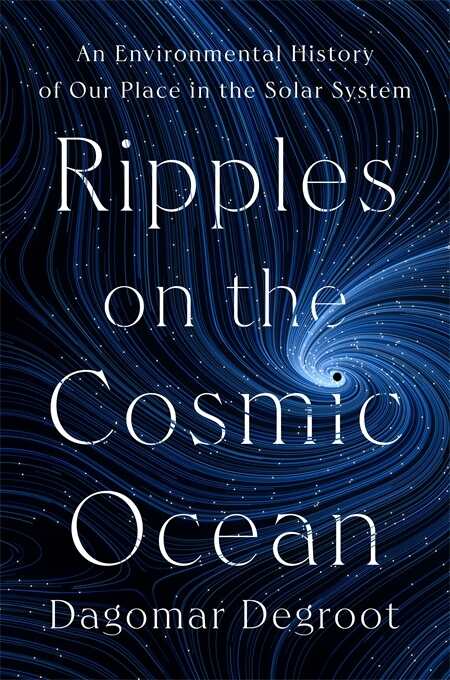Ripples on the Cosmic Ocean
An Environmental History of Our Place in the Solar System
Ripples on the Cosmic Ocean, Dagomar Degroot’s sweeping history of human encounters with the solar system, is an unconventional, moving account of how Earth’s cosmic neighborhood shaped human existence.
A mixture of intertwined microhistories of how humans interpreted, wrestled with, and explored the planets and other celestial bodies in the solar system, the book combines biographical portraits, cultural studies, and stories of scientific failures and misinterpretations with cosmic-scaled natural histories of the Sun, Venus, Mars, and other astronomical bodies. It reveals unexpected connections across disciplines that had radical effects on human understanding. Inspired by James Lovelock’s Gaia hypothesis, which interpreted Earth’s natural systems as forming one macroorganism, the book treats the entire solar system as a network of interconnected systems of exchange and influence, all of which shape even the most innocuous facts of life on Earth. Its ultimate effect is to pull earthlings out of their complacency to recognize the precarity of their position amid ongoing cosmic dramas.
The book’s balance between the disparate worlds of astrobiology, physics, and human culture is masterful. Outside of its refreshing slate of surprises about the major celestial bodies outside Earth, its biggest highlights include the shocking, and often forgotten, histories of humanity’s faulty attempts to make sense of the heavens. For example, respected scientific institutions claimed the certain existence of life on the Moon until the twentieth century. Even more intriguing are the book’s analyses of how discoveries in outer space created contradictory paradigm shifts in public perception on Earth, as with the ways research on Venus spawned international action to preserve the ozone layer while encouraging climate-change denialism in other quarters.
Ripples on the Cosmic Ocean is a scientific text with new perspectives on the question of how Earth relates to its neighbors in outer space.
Reviewed by
Isaac Randel
Disclosure: This article is not an endorsement, but a review. The publisher of this book provided free copies of the book to have their book reviewed by a professional reviewer. No fee was paid by the publisher for this review. Foreword Reviews only recommends books that we love. Foreword Magazine, Inc. is disclosing this in accordance with the Federal Trade Commission’s 16 CFR, Part 255.

